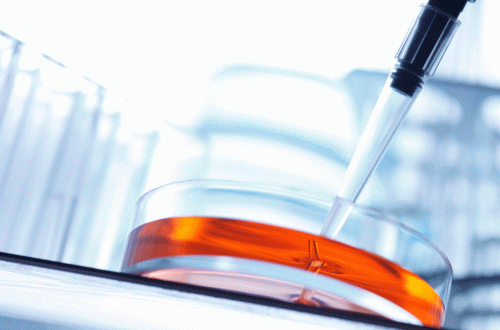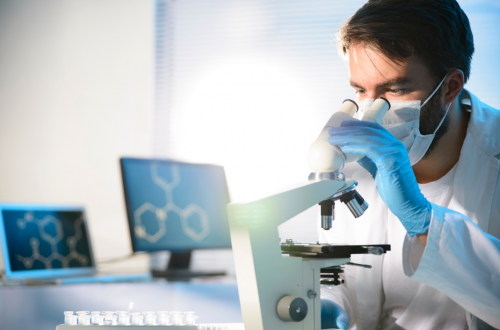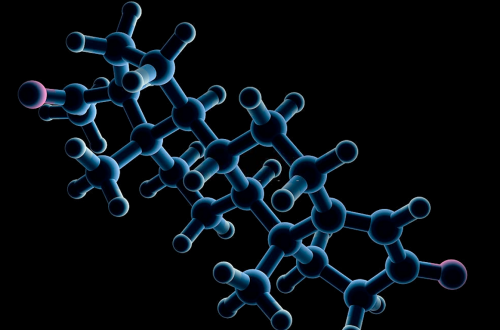Decades of research and clinical practice have shown, that metabolic and hormonal balance is essential for maintaining good health, decreasing the risk of age-related diseases, improving physical, sexual and mental capacities, boosting the immune system and, in general, improving metabolism. All this results in an increase in the quality of life.
Metabolic and Hormonal Balance is a key cornerstone of Antiaging Preventive Medicine and, therefore, of our programs.
At Neolife, we prescribe Bioidentical Hormone Replacement Therapy. (BHRT), whenever necessary, to individuals who:
· Have low or excessively high hormone levels in the blood plasma, levels that should be optimized, always under strict medical prescription.
Aging is not a process of the loss of functionality and unalterable decline. The decline in the levels of many of our hormones, throughout life, is related to this aging process, while their controlled and correctly prescribed replenishment will delay these effects.
Hormones are molecules synthesized and secreted by specialized cells, which are generally located in the endocrine glands. They are released into the bloodstream and exert biochemical effects on cells. Hormones serve as messengers to the central nervous system, instructing our internal organs how to function.
100% of the body’s functionality is reached at around 20-25 years of age, this being the optimal moment of health in our lives.
From 30-35 years of age, most hormone levels decline by 2% to 5%, per year.
In our 50s, some hormones in our body have been reduced by 50%, compared to their optimal level in our 20s.

We are all different, so each individual needs a treatment adapted to their own body.
Hormone levels, as well as their interaction with other health biomarkers, must be continuously reviewed and adjusted, under strict medical supervision, so that the precise prescription can be made at all times.
A key element of safety is the support of a medical team, with expertise in metabolic and hormonal optimization, with clinical sessions for the assessment of the treatments.
Treatments can be prescribed with creams, gels, oral capsules, subcutaneous implants (pellets), intramuscular or subcutaneous injections, etc. The choice of administration route is essential for the safety of the treatment.
Neolife’s protocols are scientifically and medically supported, and have been defined by a team of specialists, with many years of training in this medical field.
With the appropriate drugs and raw materials, always using pharmacy compounded bioidentical hormones (avoiding the use of synthetic hormones).
Bioidentical Hormone Replacement Therapy during menopause and andropause is already endorsed by scientific associations in Spain, and worldwide.
However, we are aware this is subject to some controversy. Both the use of Hormone Replacement Therapy in menopause, and the use of testosterone are associated with a series of prejudices and clichés, which a considerable number of current medical practitioners have not been able to “overcome”, despite the enormous body of available scientific evidence.
We are asked questions like, is Bioidentical Hormone Replacement Therapy (BHRT) safe? Does it cause cancer? Does it really prevent the onset of disease, and will we feel better?
If the maximum hormone levels correspond to ages between 20 and 30, a time when young people are in their vital and functional prime of life, and in the absence of disease, etc. shouldn’t it be a good thing to maintain these hormone levels in an adult, replacing their deficit with hormones identical to those that our body manufactures? The answer is – yes.

But the word “hormone” has a negative connotation in our environment, especially in our country: hormone treatment in cattle, hormone doping in athletes, hormone-induced cancer, etc.
Even the medical community, not specialized in this area of medicine (and unfamiliar with recent scientific literature and medical practice), has its misgivings. Therefore, it is logical that many people show certain distrust, when considering starting HRT.
THE STRICTEST SCIENTIFIC LITERATURE AND THE LEADING EXPERTS IN THIS FIELD, ASSURE US THAT THE PROPER BIOIDENTICAL HORMONE REPLACEMENT THERAPY, WITH STRICT MEDICAL FOLLOW-UP, IS SAFE FOR BOTH MEN AND WOMEN. WHAT IS MORE, IN MOST CASES, IT OFFERS GREAT BENEFITS FOR HEALTH, WELL-BEING, AND QUALITY OF LIFE.
More than half a century of research in the fields of immunology and endocrinology, have led to the fact that today we know more about the importance of metabolic and hormonal balance , and its impact on aging and health.
Hormone replacement therapy has been studied and researched, in depth, since the first half of the 20th century. As early as 1939, the journal Science published an article on the subcutaneous implantation of estradiol pellets. Since then, and following the most recent research, hundreds of scientific articles have defined the principles of Hormone Replacement Therapy.
There is not a single study, in the scientific literature worldwide, that indicates a higher risk of breast cancer or cardiovascular risk from using bioidentical estradiol and progesterone, in the appropriate doses and with proper medical supervision.
The latest clinical guidelines of the British NHS and the North American Menopause Society speak of the favorable benefit-risk ratio of HRT use. Furthermore, in April 2018, the SEGO (Spanish Society of Gynecology and Obstetrics) and the AEEM (Spanish Association for the Study of Menopause) published a consensus document, with the aim of: “Ending the fear of hormone therapy in menopause.”


Testosterone has been attributed to a higher risk of prostate cancer in men, and a higher cardiovascular risk. These accusations are absolutely refuted by the available scientific evidence. On the contrary: low testosterone levels are associated with metabolic syndrome, diabetes, dyslipidemia, inflammation, and mortality in general, and its supplementation leads to improvements in glycemic and lipid profile, decrease in visceral fat, and lower cardiovascular risk in general.
Regarding testosterone in women, a study published in the journal Maturitas, as early as 2015, spoke of a protective role of testosterone in breast cancer and an antiproliferative role, when used as a treatment in active breast cancer.

Bioidentical hormones have the same molecular structure as our own hormones, and are therefore metabolized in exactly the same way, as the hormones produced by our endocrine system, in a natural way, and without the possible side effects of synthetic hormones, whose chemical structure differs from natural hormones, to enhance or inhibit certain effects, or improve their storage.
These hormones are pharmacy compounded, in the dosage necessary for each man, in order to ensure that they are biologically identical.
Moreover, properly administered bioidentical hormones are absorbed directly, and do not require the involvement of the liver, so they do not interfere with medications used for heart disease, high blood pressure, kidney disease or thyroid disease, nor do they increase the risk of developing breast cancer or ovarian cancers (in the case of women).
NUMEROUS STUDIES HAVE SHOWN HARMFUL EFFECTS OF SYNTHETIC HORMONES, WHILE ON THE CONTRARY, SCIENTIFIC AND MEDICAL PUBLICATIONS ADMIT THAT BIOIDENTICAL HORMONES DO NOT PRODUCE ADVERSE EFFECTS.
No posts found!
En los años 90 se produjo una gran confusión en lo relativo al reemplazo hormonal en mujeres menopáusicas a raíz del estudio Women’s Health Initiative (WHI); este se paró bruscamente al observar que las mujeres incluidas en el estudio desarrollaban cáncer de mama y enfermedades trombóticas con mayor frecuencia. Sin embargo, las hormonas usadas eran sintéticas y de yegua, para nada bioidénticas como las que se usan en la Age Management Medicine y en Neolife. Se han hecho centenares de estudios basados en este y reinterpretaciones de los resultados del mismopara descubrir que ese exceso de riesgo se debía básicamente a la Medroxiprogesterona. Cuando el mismo estudio se ha hecho con estradiol bioidéntico transdermal y progesterona micronizada no se ha apreciado aumento de cáncer de mama ni de enfermedad cardiovascular, y sí efectos beneficiosos a múltiples niveles que influyen enormemente en la salud de la mujer durante la menopausia.
No existe un solo estudio en la literatura científica mundial que demuestre exceso de riesgo de cáncer de mama o de riesgo cardiovascular usando estradiol y progesterona bioidénticos en las indicaciones adecuadas y con una correcta supervisión médica.
Las últimas guías clínicas del NHS británico y de la North American Menopause Society hablan del favorable ratio beneficio-riesgo del uso de la TRH. Y sin irnos tan lejos, en abril de 2018 la SEGO (Sociedad Española de Ginecología y Obstetricia) y la AEEM (Asociación española para el estudio de la menopausia) publicaron un documento de consenso con el objetivo de: “Acabar con el temor a la terapia hormonal en la menopausia”.
Se hizo una revisión sistemática de todos los ensayos clínicos aleatorizados y estudios epidemiológicos relacionados con la Terapia de Reemplazo Hormonal concluyendo que es la terapia más eficaz, eficiente y segura y que el temor a su uso es injustificado.
Pero analicemos también lo relativo a la testosterona, por mencionar otra de las hormonas bioidénticas que manejamos y que están sometidas a escrutinio, afectando este caso también a los hombres. Ha cobrado mala fama basándose en extrapolaciones imposibles desde los andrógenos de síntesis que se utilizan como fármacos para aumentar el rendimiento en el mundo del deporte y del fisioculturismo. Se le ha atribuido un aumento del riesgo de cáncer de próstata y aumento de riesgo cardiovascular. Estas acusaciones son absolutamente refutadas por la evidencia científica disponible. El British Journal of Urology publicó que no está relacionado ni con cáncer de próstata ni con elevaciones del PSA; todo lo contrario, la evidencia actual indica que son precisamente valores más agresivos. Asimismo, en cuanto al riesgo cardiovascular, se está incluyendo el hipogonadismo (o bajos niveles de testosterona) como un nuevo y no reconocido, hasta ahora, factor de riesgo cardiovascular.
Y es que bajos niveles de testosterona se asocian a síndrome metabólico, diabetes, dislipemia, inflamación y mortalidad en general, y su suplementación lleva a mejorías de perfil glucémico, lipídico, disminución de grasa visceral y del riesgo cardiovascular en general.
Respecto a la testosterona en mujeres, un estudio publicado en la revista Maturitas ya en 2015 hablaba de un papel protector de la testosterona frente a cáncer de mama y un papel antiproliferativo usado como tratamiento en el cáncer de mama activo.
In the 1990s there was a great deal of confusion regarding hormone replacement in menopausal women following the study Women’s Health Initiative (WHI); this came to an abrupt halt when it was observed that the women included in the study developed breast cancer and thrombotic diseases more frequently. However, the hormones used were synthetic and mare hormones, not at all bioidentical like the ones used in the Age Management Medicine and in Neolife. Hundreds of studies based on this and reinterpretations of the results of the same have been done to discover that this excess risk was basically due to Medroxyprogesterone. When the same study was carried out with transdermal bioidentical estradiol and micronized progesterone, no increase in breast cancer or cardiovascular disease was observed, and beneficial effects were observed at multiple levels that greatly influence women’s health during menopause.
There is not a single study in the world scientific literature that demonstrates excess risk of breast cancer or cardiovascular risk using bioidentical estradiol and progesterone in the appropriate indications and with proper medical supervision.
The latest clinical guidelines of the British NHS and of the North American Menopause Society speak of the favorable benefit-risk ratio of HRT use. And without going that far, in April 2018 the SEGO (Spanish Society of Gynecology and Obstetrics) and the AEEM (Spanish Association for the Study of Menopause) published a consensus document with the aim of: “Ending the fear of hormone therapy in menopause”.
A systematic review was made of all randomized clinical trials and epidemiological studies related to Hormone Replacement Therapy concluding that it is the most effective, efficient and safe therapy and that fear of its use is unjustified.
But let’s also look at testosterone, to mention another of the bioidentical hormones that we handle and that are under scrutiny, in this case also affecting men. It has gained a bad reputation based on impossible extrapolations from the synthetic androgens used as performance enhancing drugs in the world of sports and bodybuilding. It has been attributed to an increased risk of prostate cancer and increased cardiovascular risk. These allegations are absolutely refuted by the available scientific evidence. The British Journal of Urology published that it is not related to prostate cancer or PSA elevations; On the contrary, current evidence indicates that they are precisely more aggressive values. Likewise, in terms of cardiovascular risk, hypogonadism (or low testosterone levels) is being included as a new and hitherto unrecognized cardiovascular risk factor.
Low testosterone levels are associated with metabolic syndrome, diabetes, dyslipidemia, inflammation and mortality in general, and its supplementation leads to improvements in glycemic and lipid profile, reduction of visceral fat and cardiovascular risk in general.
Regarding testosterone in women, a study published in the journal Maturitas as early as 2015 spoke of a protective role of testosterone against breast cancer and an antiproliferative role used as a treatment in active breast cancer.
|
|